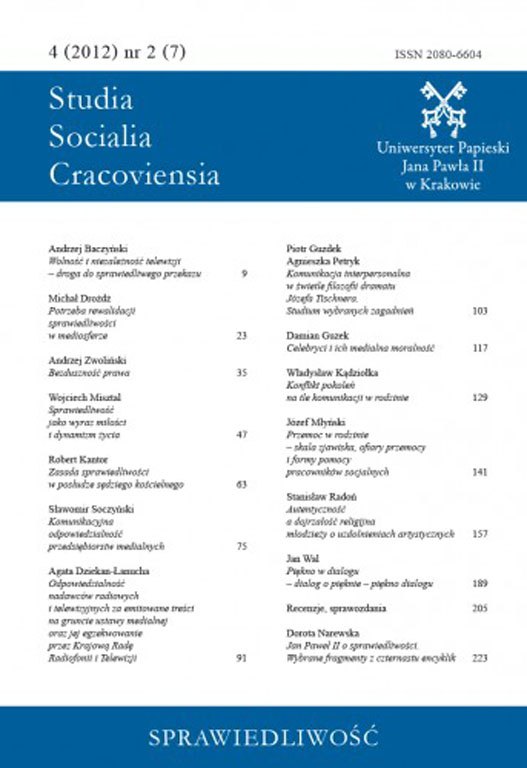Autentyczność a dojrzałość religijna młodzieży o uzdolnieniach artystycznych
DOI:
https://doi.org/10.15633/ssc.417Słowa kluczowe:
dojrzałość religijna, autentyzm, badania młodzieżyAbstrakt
Artykuł jest próbą jakościowej analizy relacji autentyczności do dojrzałości religijnej u młodzieży o uzdolnieniach artystycznych. Autor opiera swoje analizy na badaniach empirycznych młodzieży w szkołach artystycznych, odwołując się do psychologicznych i aksjologicznych uwarunkowań autentyzmu życia młodych ludzi.Pobrania
Opublikowane
2012-12-31
Numer
Dział
Rozprawy, opracowania
Licencja
Prawa autorskie (c) 2012 Stanisław Radoń

Praca jest udostępniana na licencji Creative Commons Attribution-NonCommercial-NoDerivatives 3.0 Unported License.
Autorzy publikujący w czasopiśmie udzielają jego wydawcy zgody o następującej treści:
- Autor zachowuje autorskie prawa majątkowe do utworu, a jednocześnie udziela wydawcy czasopisma zgody na jego pierwszą publikację w wersji drukowanej i wersji online na licencji Creative Commons Uznanie autorstwa 4.0 Międzynarodowe oraz zgody na wykonywanie opracowań, w tym przekładów.
- Autor ma możliwość udzielania zgody niewyłącznej na opublikowanie utworu w wersji, która ukazała się w czasopiśmie (np. zamieszczenia go w repozytorium instytucjonalnym lub opublikowania w książce), wraz z informacją o jego pierwszej publikacji w czasopiśmie.
- Autor może umieścić swój utwór online (np. w repozytorium instytucjonalnym lub na swojej stronie internetowej) jeszcze przed zgłoszeniem utworu do czasopisma.

